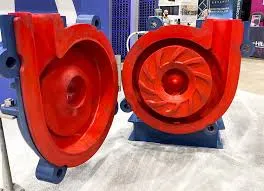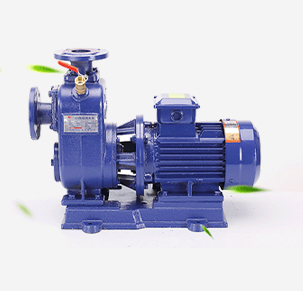TEL:
+86 13120555503
English
- Afrikaans
- Albanian
- Amharic
- Arabic
- Armenian
- Azerbaijani
- Basque
- Belarusian
- Bengali
- Bosnian
- Bulgarian
- Catalan
- Cebuano
- Corsican
- Croatian
- Czech
- Danish
- Dutch
- English
- Esperanto
- Estonian
- Finnish
- French
- Frisian
- Galician
- Georgian
- German
- Greek
- Gujarati
- Haitian Creole
- hausa
- hawaiian
- Hebrew
- Hindi
- Miao
- Hungarian
- Icelandic
- igbo
- Indonesian
- irish
- Italian
- Japanese
- Javanese
- Kannada
- kazakh
- Khmer
- Rwandese
- Korean
- Kurdish
- Kyrgyz
- Lao
- Latin
- Latvian
- Lithuanian
- Luxembourgish
- Macedonian
- Malgashi
- Malay
- Malayalam
- Maltese
- Maori
- Marathi
- Mongolian
- Myanmar
- Nepali
- Norwegian
- Norwegian
- Occitan
- Pashto
- Persian
- Polish
- Portuguese
- Punjabi
- Romanian
- Russian
- Samoan
- Scottish Gaelic
- Serbian
- Sesotho
- Shona
- Sindhi
- Sinhala
- Slovak
- Slovenian
- Somali
- Spanish
- Sundanese
- Swahili
- Swedish
- Tagalog
- Tajik
- Tamil
- Tatar
- Telugu
- Thai
- Turkish
- Turkmen
- Ukrainian
- Urdu
- Uighur
- Uzbek
- Vietnamese
- Welsh
- Bantu
- Yiddish
- Yoruba
- Zulu
Telephone: +86 13120555503
Email: frank@cypump.com
Feb . 17, 2025 15:37 Back to list
Septic Tank Pumps
Septic pump systems play a critical role in maintaining the functionality and longevity of septic systems, which are essential for properties not connected to municipal sewer lines. Choosing the right product can significantly impact not just the home environment but also the surrounding ecosystem. To ensure you make an informed decision, here are some expert insights and practical experiences that highlight the importance, functionality, and benefits of septic pump systems.
Among the myriad of options available in the market, systems with grinder pumps deserve special attention. These pumps are particularly effective in breaking down solid waste, which is especially useful for households with high solid waste output or those disposing of materials that are tougher to degrade. Incorporating a grinder pump can extend the life of the septic system and reduce the frequency of tank pumping. Installation and maintenance are vital components in the utilization of septic pump systems. It is imperative that installation is performed by certified professionals to ensure compliance with local regulations and to prevent future issues. Additionally, maintaining a regular service schedule—typically every three to five years—is crucial. Regular inspections can preemptively identify issues such as blockages, wear and tear, or malfunctioning components, allowing for timely interventions that can save on extensive repairs in the future. The authority and trustworthiness of a septic pump system manufacturer can often act as a guiding light for your purchase. Renowned brands often offer warranties and customer service options that reflect their confidence in their product's durability and effectiveness. Checking customer reviews and industry ratings can provide insight into real-world performance and reliability. When evaluating options, consider the environmental impact of the chosen system. Eco-friendly systems reduce energy consumption and contribute less to environmental degradation, aligning with sustainable practices and often resulting in long-term savings on utility bills. In conclusion, investing in a high-quality septic pump system is not merely about keeping your property’s wastewater management in check. It is about safeguarding the broader environment, ensuring long-term savings, and maintaining regulatory compliance. With insights drawn from experienced professionals and practical considerations, homeowners can make informed decisions that fulfill their immediate needs and align with broader ecological sensibilities.


Among the myriad of options available in the market, systems with grinder pumps deserve special attention. These pumps are particularly effective in breaking down solid waste, which is especially useful for households with high solid waste output or those disposing of materials that are tougher to degrade. Incorporating a grinder pump can extend the life of the septic system and reduce the frequency of tank pumping. Installation and maintenance are vital components in the utilization of septic pump systems. It is imperative that installation is performed by certified professionals to ensure compliance with local regulations and to prevent future issues. Additionally, maintaining a regular service schedule—typically every three to five years—is crucial. Regular inspections can preemptively identify issues such as blockages, wear and tear, or malfunctioning components, allowing for timely interventions that can save on extensive repairs in the future. The authority and trustworthiness of a septic pump system manufacturer can often act as a guiding light for your purchase. Renowned brands often offer warranties and customer service options that reflect their confidence in their product's durability and effectiveness. Checking customer reviews and industry ratings can provide insight into real-world performance and reliability. When evaluating options, consider the environmental impact of the chosen system. Eco-friendly systems reduce energy consumption and contribute less to environmental degradation, aligning with sustainable practices and often resulting in long-term savings on utility bills. In conclusion, investing in a high-quality septic pump system is not merely about keeping your property’s wastewater management in check. It is about safeguarding the broader environment, ensuring long-term savings, and maintaining regulatory compliance. With insights drawn from experienced professionals and practical considerations, homeowners can make informed decisions that fulfill their immediate needs and align with broader ecological sensibilities.
Share
Next:
Latest news
-
ISG Series Vertical Pipeline Pump - Chi Yuan Pumps Co., LTD.|High Efficiency, Energy Saving, Low Noise
NewsJul.30,2025
-
ISG Series Vertical Pipeline Pump- Chi Yuan Pumps|High Efficiency&Low Noise
NewsJul.30,2025
-
ISG Series Vertical Pipeline Pump-Chi Yuan Pumps Co., LTD.|High Efficiency&Energy Conservation
NewsJul.30,2025
-
ISG Series Vertical Pipeline Pump - Chi Yuan Pumps Co., LTD.|Advanced Hydraulic Design&Energy-Efficient Solutions
NewsJul.30,2025
-
ISG Series Vertical Pipeline Pump - Chi Yuan Pumps Co., LTD.
NewsJul.30,2025
-
ISG Series Vertical Pipeline Pump - Chi Yuan Pumps Co., LTD.|energy-efficient fluid handling&industrial durability
NewsJul.30,2025










